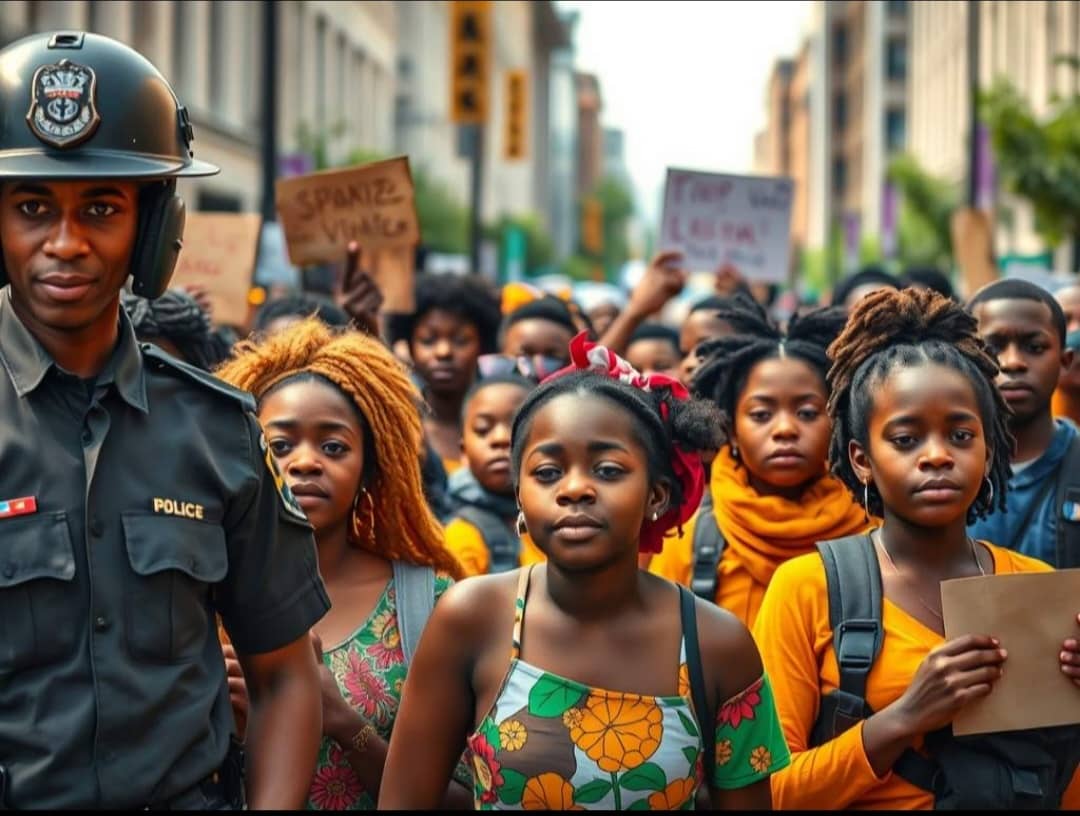Must it come with bloodshed?

By Sabaha Abonyin
Africa’s forefathers fought with their lives to secure freedom from colonial injustice. Yet little did they know that a few years to come a generation that only heard of their toils as hearsay would see it as nothing.
About two weeks ago, Nepal, a South Asian country, saw its vibrant youth take to the streets to protest and go as far as to set fire to the very building that houses lawmakers, their parliament house.
This was as a result of accumulated tension and anger against the government's involvement in corruption, nepotism and a ban on social media.
The protest was widely described as a Gen-Z protest. This brand of youth-led protest is not new: Kenyans demonstrated months earlier to oppose what they saw as excessive taxation on ordinary citizens.
It was, however, disheartening and scary reading through comments from a video the BBC posted, reading as people wished the same would happen in their countries, even after the videos added the number of casualties involved.
READ MORE: Time To End Delegates Voting: Reclaim Ghana's Politics From The Marketplace
Comments like “Kenyan prayer answered in Nepal”, “South Africa is next”, “and for Nigeria, only mouth wey get...nothing more”, “Africa next”, “Hope the Ghana government and officials are watching and learning”, “Gari Gen Z of Sudan, what are you waiting for?”, and others echoing similar calls across Africa, urging youth in Nigeria, Ghana, and Sudan to rise up.
In the midst of anger, some have asked for use of the other alternative to democracy. It is true that most of our leaders mount the highest authority podium of the land to amass wealth to cater for a generation they will not meet while the current generation in their country suffers.
It is also true that a significant number of African countries do not practise democracy to its fullest but rather skim through the book of democracy to favour themselves. However, the opposite of democracy is not one we can afford to adopt.
The history of the hardships during colonial and military rule is not conducive for growth and development.
If the principle (democracy) that adheres to freedom of expression, the right to protest, checks and balances, the rule of law, and the right to vote, amongst others, can witness brutality during protests, elections, suppression of the media, corruption, nepotism, and abuse of power, then its alternative offers no assurance of improvement.
There must be a way for African leaders and citizens to live concurrently. The future, I believe, is African, and it's about time our leaders led with dignity and really built our continent from the numerous resources in abundance.
Over 60% of Africa’s population is under 25 – a clear signal that young people will shape the continent’s politics.
READ MORE: Fugu: Ghana's Traditional Smock of Pride and Heritage
Cap into the energetic and youthful human resources to replenish the raw materials into finished and semi-finished goods and make use of their intellect to develop the continent.
For one needs not to be told through prophetic revelation with the recent happenings that the current and upcoming generations are not just spectators of governance. They demand accountability and utmost transparency from leaders of their countries.
Nothing stops them from taking charge and demanding what rightfully befits them as citizens when the time arises.
However, it should not get to the point where people are killed in demanding what belongs to them.
The era we are living in needs not to have bloodshed before the right thing will be done. The era of bloodshed for the good cause of our continents ought to be over.
We should be reaping the freedom our forefathers died for, not shedding more blood to claim it again. But what happens when a frustrated youth decides enough is enough? From Kenya to Nepal, Gen Z is showing the world.


